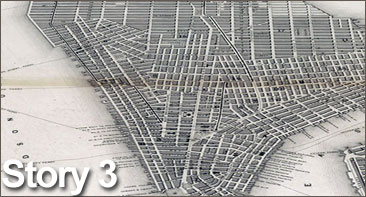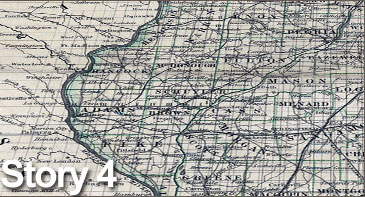Starting a new life
 Peter Hastie (emigrated 1830s)
Peter Hastie (emigrated 1830s) John and Martha Kerr (emigrated early 1840s)
John and Martha Kerr (emigrated early 1840s)
The experience of being an emigrant, and the success or failure of the venture, was dependent on many factors. Every destination, whether urban or rural, presented its own set of challenges and opportunities. In this section, you can explore the contrasting stories of Peter Hastie who became an engineer in New York, and John and Martha Kerr, farmers in Illinois.
The availability of land, and the prospect of plentiful crops, attracted many would-be emigrants to Canada, the USA, and Australasia. For many Scots, the experience of emigration involved learning to work the land, whatever their previous experience of farming. The task could be challenging, particularly having to adapt to a different climate and unfamiliar environment. Farming emigrants often took a long-term view of success, seeing current hardships and toil as a necessary step towards a more prosperous future.
Despite early advice to settlers to avoid the ports of arrival, many had no choice but to seek employment and to make use of their skills in towns and cities. Urban centres often offered better employment prospects and the promise of good salaries, particularly in the manufacturing and engineering industries. The urban emigrant often had a more itinerant lifestyle than those who worked the land, and also had less independence. However, urban society provided greater opportunities to participate more actively in political life and to mix with other emigrant communities.
